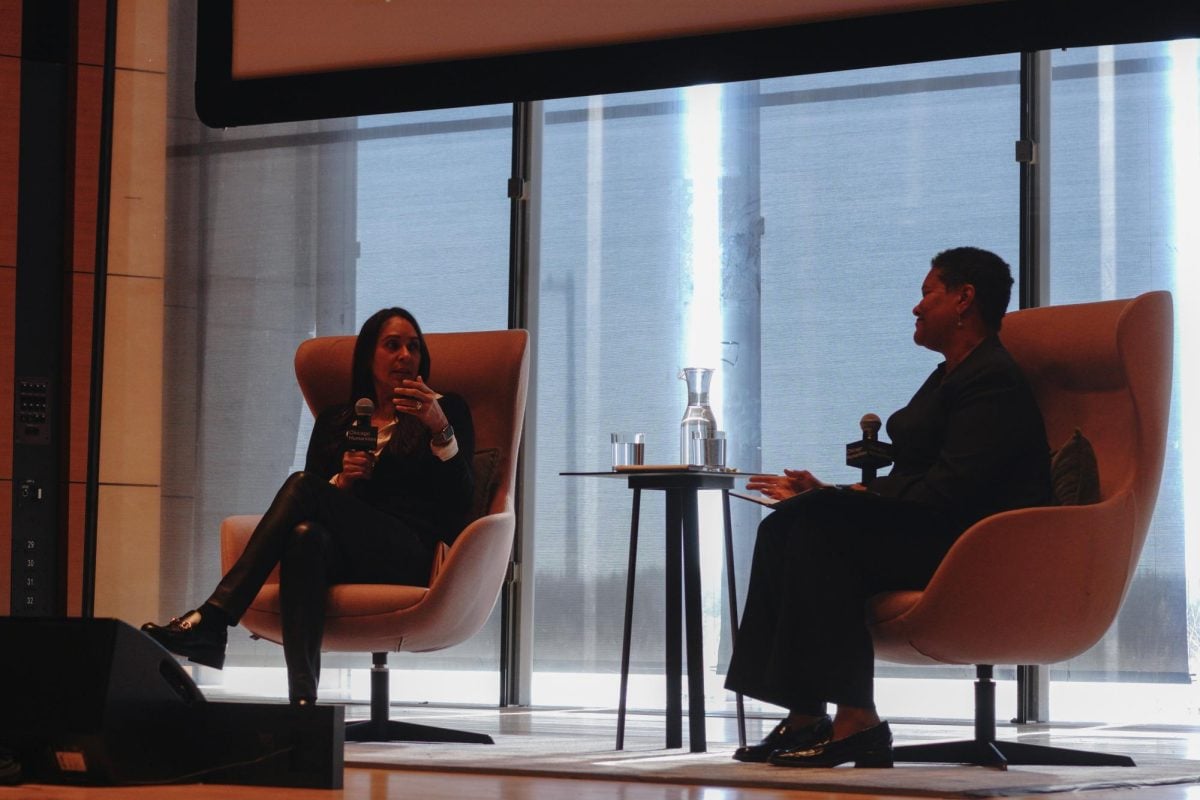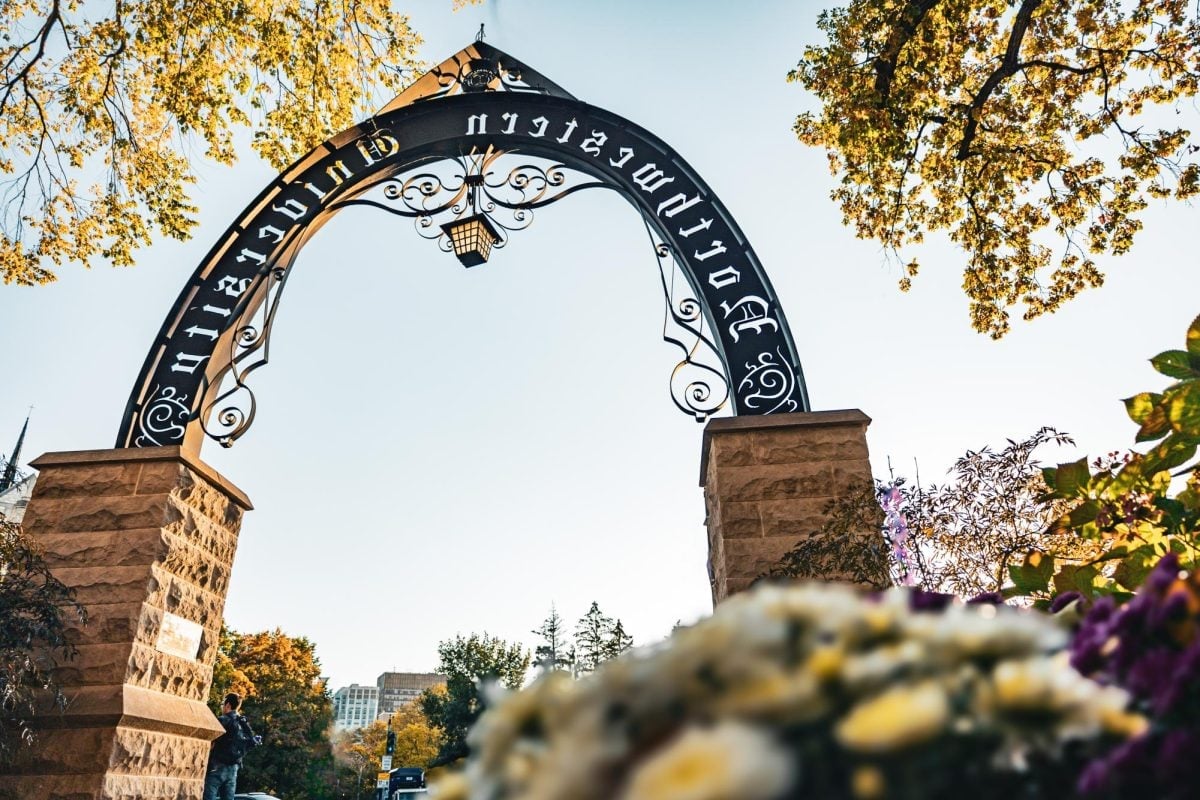Award-winning poet and English Prof. Natasha Trethewey discussed her latest memoir, “The House of Being,” with moderator and history Prof. Leslie Harris in Galvin Recital Hall on Saturday as part of the Chicago Humanities Festival.
Trethewey read excerpts from her book and explored the impact of different locations from her childhood on her life. She, in particular, highlighted her childhood home: her grandmother’s house in Mississippi.
The shotgun-style house was located at the crossroads between U.S. Route 49, one of the routes involved in the legend of blues artist Robert Johnson, and Jefferson Street, named after Thomas Jefferson.
For Trethewey, it represented a figurative crossroads as well.
“I sat at this crossroads of both a vernacular tradition of that road, 49, and the classical tradition and enlightenment values of Thomas Jefferson,” Trethewey said.
Trethewey also elaborated on the legacy of Thomas Jefferson, who historians celebrate for his ideas yet criticize for his role in human trafficking and other scandals.
Harris said some students and colleagues may disregard or cancel ideas of figures like Jefferson due to their controversy.
“Part of the reason we’re here is because of all the bad things and the good things, and it’s really a struggle to sort of live through that,” Harris said. “That is a big crossroads.”
Trethewey also struggled with this idea while naming her most recent book, “The House of Being,” which alludes to German philosopher and Nazi Party member Martin Heidegger’s saying, “language is the house of being.”
Trethewey said her father often recited the quote to her. Years later, Trethewey said she recognizes truth in the saying and how important it is to be able to grapple with the realities of something while also admiring its beauty.
“Enduring ideas come from difficult places,” Trethewey said.
Trethewey and Harris then opened the floor up to questions from the audience.
Attendee and recently retired high school teacher Darryl Einhorn related the talk to her experiences in the classroom, highlighting the importance of open conversation and confronting hard truths.
“A really important piece for me was to open space for students to be able to ask questions, to engage in conversations with each other, to learn more of what they didn’t know, but also to bring their own experiences into the classroom,” Einhorn said. “And I feel like I’ve seen a shift in the past 15 years where that space becomes narrower and narrower.”
Trethewey also delved into her experience as a poet, including her time as the U.S. Poet Laureate from 2012 to 2014.
She described her time as a graduate student trying to tell a story about a vanishing community of formerly enslaved Black people after the Civil War while professors told her to turn her attention elsewhere. Trethewey emphasized the power of classical traditions like poetry in shedding light on hidden stories.
“If I write this in a sonnet, you will not be able to ignore it,” Trethewey said.
Email: christinalin2028@u.northwestern.edu
X: @chrisyjlin
Related Stories:
— Writer Sandra Cisneros discusses new book for Chicago Humanities Festival







